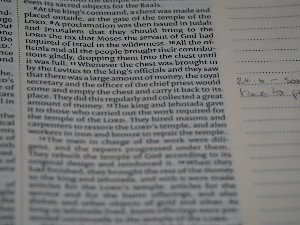Kudhori Muhammad Kudhori
Kritik Atas Tashkik Jalaluddin Rakhmat Terhadap Validitas Hadis Puasa Asyura
Introduction
Kritik atas tashkik jalaluddin rakhmat terhadap validitas hadis puasa asyura. Artikel ini mengkritik tantangan Jalaluddin Rakhmat terhadap validitas hadis puasa Asyura. Disimpulkan hadis tersebut sahih, bukan rekayasa Bani Umayyah, dan puasa Asyura tetap sunnah.
Abstract
The fasting of Asyura has become sunnah tradition which is very popular among Moslem since long time ago. But, the existentialist of sunnah fasting Asyura get a critic from Jalaluddin Rakhmat in his book “Islam Aktual”. Based on Jalaluddin Rakhmat, the hadith that explain about the fasting that came from Ibn ‘Abbas is having a problem, because Ibn ‘Abbas who told the hadith did not see the occasion directly. Rakhmat also said that some hadiths in Asyura fasting has a contradiction among others. His conclusion defines that the sunnah of Asyura fasting is the politic engineering of Bani Umayyah so as Moslem rusted about the affair of al-Husayn’s assassination in Karbala, 61 Hijriah. This article is written as an effort to re-research toward the critics of Rakhmat. This article is a qualitative research using library references (library research). Content analysis and descriptive-analytical are used as data analysis methods with a historical approach. According to History analytic and Hadith’s antecedent are obtained that hadith from Ibn ‘Abbas about the sunnah of fasting Asyura classified into sahih hadith, Mursal Sahabi Hadith. So as, it can be a hujjah. Some hadiths about Asyura fasting which are told by Prophet’s followers also do not have any contradiction among them. In conclusion, Asyura fasting still became a sunnah tradition which is suggested by Prophet Muhammad Saw. and it is done by his followers also. Asyura fasting is not a politic engineering of Bani Umayyah that has an aim to rust Moslem about the memory in Karbala because it is done by Moslem long time ago before the accident in Karbala happened.
Review
This paper, titled "Kritik Atas Tashkik Jalaluddin Rakhmat Terhadap Validitas Hadis Puasa Asyura," addresses a significant and potentially controversial topic within Islamic studies: the validity and origin of the Ashura fasting hadith. The abstract clearly outlines the paper's purpose to critically re-evaluate Jalaluddin Rakhmat's skepticism, as presented in his book "Islam Aktual," regarding the authenticity of the Ashura fast. Rakhmat's claims—that the Ibn 'Abbas hadith is problematic due to indirect observation, that Ashura hadiths are contradictory, and crucially, that the fast itself is a political fabrication by Bani Umayyah to obscure the Karbala tragedy—form the central points of contention that this study seeks to dismantle. The research positions itself as a qualitative library study, aiming to provide a robust response to these challenges. Employing content analysis and a descriptive-analytical method alongside a historical approach, the article systematically re-examines the foundations of Rakhmat's critique. The findings presented in the abstract are definitive: the hadith from Ibn 'Abbas regarding the Ashura fast is classified as *sahih*, specifically a *Mursal Sahabi* hadith, thus rendering it a valid *hujjah* (legal proof). Furthermore, the study asserts that no contradictions exist among the various Ashura fasting hadiths narrated by the Prophet's companions. Crucially, the paper refutes the political engineering theory, arguing that the practice of Ashura fasting predates the Karbala incident, thereby demonstrating it could not have been a Umayyad stratagem to divert attention from al-Husayn's assassination. This article thus offers a direct and comprehensive rebuttal to Rakhmat's challenging assertions, upholding the traditional sunnah status of the Ashura fast. While the abstract promises a thorough re-evaluation and presents clear conclusions, a full review of the paper would need to ascertain the depth and rigor with which it engages with Rakhmat's specific arguments and methodological underpinnings, rather than solely offering counter-evidence. For instance, understanding *how* the paper meticulously deconstructs Rakhmat's interpretation of "indirect observation" or his specific textual criticisms of contradictions would be vital. Future research could explore the broader implications of such *tashkik* (skepticism) within contemporary Islamic thought, particularly how scholars navigate historical and textual criticism while maintaining traditional interpretations. Additionally, comparing this paper's methodology and findings with other academic responses to similar historical-critical analyses of hadith could further enrich the discussion and provide a more nuanced understanding of the ongoing debates surrounding hadith validity in modern scholarship.
Full Text
You need to be logged in to view the full text and Download file of this article - Kritik Atas Tashkik Jalaluddin Rakhmat Terhadap Validitas Hadis Puasa Asyura from PUTIH: Jurnal Pengetahuan Tentang Ilmu dan Hikmah .
Login to View Full Text And DownloadComments
You need to be logged in to post a comment.
Top Blogs by Rating
The Unfakeable Truth Machine:...
By Sciaria
Beyond the Read Receipt: Decod...
By Sciaria
Static Futures, Dynamic Beats:...
By Sciaria
Favorite Blog
Beyond the Stereotype: Unpacki...
By Sciaria
The Hidden Power of Micro-Comm...
By Sciaria
Unveiling the Hidden Journeys:...
By Sciaria





